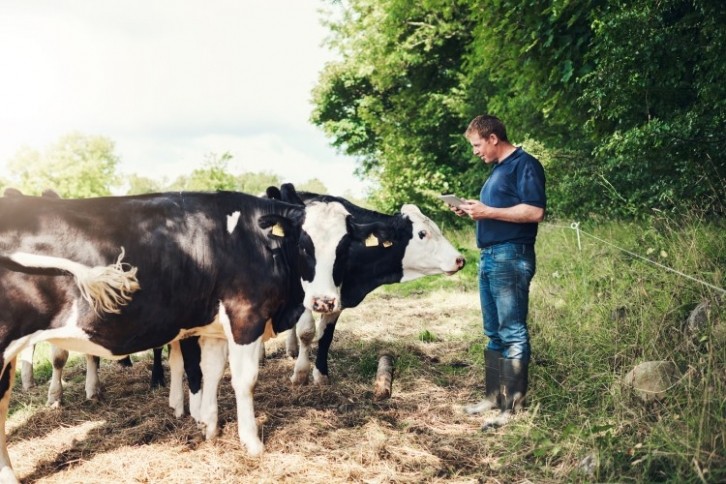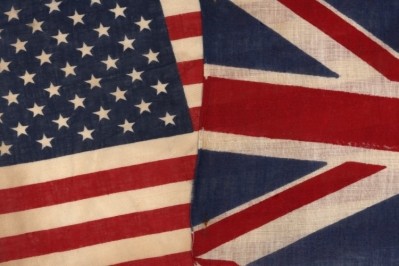UK’s dairy export program ‘welcome’ but ag industry calls for joined-up approach from government

The program is a direct result of the £1m funding committed by the government in May 2023 and forms part of a wider package of government support for agriculture, food and drink. This includes an investment of £2 million to boost DBT’s programme of global tradeshows and missions, which will be delivered in partnership with industry and the Food and Drink Export Council.
Targeted support has also been promised, including sessions on how to boost exports and target new markets and trade promotion activity but also market intelligence support. Food and drink companies also benefit from support through DBT’s Export Support Service, Export Academy, UK Export Finance and a network of International Trade Advisers.
National Farmers’ Union dairy board chair Michael Oakes said the funding ‘puts the UK dairy industry in a strong position to bolster our global exports and help us to set a global standard when it comes to trading sustainable, climate-friendly dairy products.
“As set out in the NFU’s Dairy Export Strategy, boosting exports requires commitment and resource from government, working in partnership with industry, to help create market opportunities and enable growth,” Oakes said. “This funding commitment from government will boost on-going market development work and support dairy specific trade promotion. We must continue to see joint industry and government collaboration on reducing barriers to trade and improving market access.”
According to AHDB, UK dairy processors export to 135 countries, with annual exports exceeding one million tons in recent years. According to Food and Drink Federation data from September 2023, cheese is the UK’s top food export and is worth nearly £400m compared to chocolate (£386m). The dairy commodity is typically one of the most valuable food and drink category export and ranked third in 2022 behind whisky and chocolate. In 2022, cheese exports were around 180Mt or £785m in value terms. Of these 80% headed to the EU.
In Q3 2023 however, dairy exports to Britain’s biggest trading partner were flat year-on-year, recording just 1% increase on 2022. Cheese exports to the EU dwindled a little this year to date according to the AHDB, while dairy and meat producers have warned that regulatory barriers still hamper opportunities.
In an Environment, Food and Rural Affairs Committee hearing on November 17, representatives of three agriculture industry bodies called up for the government to establish ‘a more joined-up approach’ between government departments and industry in order to get exporters the resources they need to successfully export their products overseas. Sean Ramsden, director of the Food and Drink Exporters Association, warned that UK’s trade strategy for food and agriculture ‘doesn’t seem to be very coherent at the moment’, adding that the main focus was on free trade agreements. “We seem to have overlooked our main trading partner the EU – prior to Brexit 50% of our revenue of my own company went to the EU, that’s now closer to about 25%; our sales have dropped from £25m a year to less than £11m immediately after Brexit and now £16m thanks to the efforts that we’ve made,” he stated.
“We supply virtually everything you’d find in a British supermarket, across all food and drink categories. At the moment though, it is not viable for us to export anything with meat or dairy content because of the cost and complexities of getting that certified. So we are not even able to offer a full range of products into the EU at the moment.
“Our model is to supply product from 400 different manufacturers, customers have only been able to buy one case per product as a wholesaler. The problem is of course that one case often requires a veterinary inspection and certification and it’s £5 for the product, probably a £100 for the veterinary inspection so obviously the economics are completely broken.”
Katie Doherty, CEO of the International Meat Trade Association, added: “There have been some structures put in place such as the trade advisory groups but we are missing joining up with government departments particularly Defra and the Department for Business and Trade. We need better engagement with industry because the trade advisory groups are useful and the consultations we’ve had before trade agreements are negotiated have been useful, but we need more granular level of engagement. And we also need better knowledge transfer within government departments.”
Doherty added that from an export perspective, factors such as veterinary market access was ‘vital’ for the meat industry. “There’s no point negotiating a zero-tariff agreement without the veterinary market access,” she concluded.
“There’s a focus on trade negotiations being about elimination or reduction of tariffs and ask virtually any exporter – it’s not the tariff barriers, it’s the technical and the regulatory stuff,” Ramsden continued. “There was a big song and dance made about tariffs have come down by 5% from one of the either Australia or NZ [FTAs] and ask any exporter, they see currency fluctuations week by week.” Asked if the government should be focusing on non-tariff barriers, he said, “Absolutely.”
Robert Sheasby, chief executive of the agricultural industries confederation, added that communication between officials and the industry during trade negotiations could also be improved going forward. "I have signed an NDA with our government, yet in every trade negotiation bar the update nobody’s approached me about specific negotiating points once the strategy had been agreed," he said. "Other countries around the world collaborate way more closely with the industry to ensure civil servants have the best possible knowledge to make informed decisions. We could learn from these countries where that greater partnership exists between industry and government to secure the best possible trading terms in any trade agreement."
The full committee meeting can be seen online via Parliamentlive.tv.





